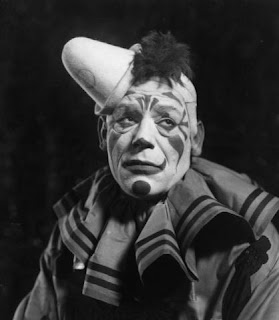Extraordinary Discourse 088
Shape-Shifting Samizdat
Inner Highlighter
I read Lewis Thomas's adventure with the essays of Montaigne. Thomas said he would fold over the corner of the page if there was something on it he was sure to want to come back to-- after a while the book was much thicker with all the folded page-corners.
All readers have an "inner highlighter." I have had occasion to wonder how many actually do get back to those yellow-highlighted lines of text, and what they do with them if they do get back to them.
At least text is somewhat stable, it's dry land, you can find your way back to it. As for electronic media, what you don't record is gone, around the bend down the river. And yet the spoken word is human, nuanced, ensouled, grounded in a body, closer to us, you and I, as we sit here with warm breath in our nostrils.
For many years I hunted (aggressive receptivity) and electrically gathered an eclectic harvest, clipped out the highlighted utterances, burned the tares (erased the tapes). From text, I rendered the highlighted items oral by my own "dramatic readings"-- from lots of locations-- inside a variety of cars parked in empty lots in winter dawns, in rainstorms, on park roads and back roads in summer, in Jenny's little white Mazda, Greg's Beetle, my Dodge Tradesman camperized van-- microphone taped to the steering wheel; or inside apartments and houses when I felt free enough to open the voice unself-consciously, and experiment with its engagement with text. I read from the deep-belly car deck of a BC ferry, and to loud birdsong in a chalet up Mount Washington in the off-season. I read into reel-to-reels, a variety of cassette decks, recording walkmans, a minidisk machine, and "directly" into the computer. I telephoned myself to leave messages.
It all felt like hunting-and-gathering jigsaw puzzle pieces from here, there, and everywhere: CBC radio, friends in conversations, found tapes in old answering machines in thrift stores and yard sales, and of course all over the Internet.
I think the overall picture may have been my education in process, like the field mice rescuing Dorothy from the poppy field-- a hum, or rumble of cultural synergy could be heard if one listened, a hint of birth and delivery.
So it was all very personal. Who cares that a guy collected a bunch of stuff that was meaningful to him?
But as Thomas said of Montaigne, who repeatedly revealed what an "ordinary man" he was, and realizing how then he was everybody, I had a little whispering intuition that this gardener's clippage of mine may have social value after all. To me, leaves of spoken language are perennially green.
Writers write of the fragmentation of modern media content, complaining about the "sound-bite culture" which doesn't allow for interconnection or depth. Disequilibrium theory (Prigogine) transposed might suggest not putting out extensive analyses or programs-- big books are a dime a dozen and weigh down many a shelf. Utilitarian activists say "organize"-- well then, organize sound bites, and let the ludic organization be the radicle: no commentary needed, the speakers speak for themselves and the organization of utterances speaks for itself, except for the occasional rhetorical technique of repetition, which is embedded in an offset way. My fantasy is that it will become easy to digitally isolate each of these discrete utterances and save them separately, then they can be remixed, randomly and otherwise. Stir the wisdom, and vice-versa!
--Jack Saturday
Lloyd deMause
The dear old lady recites from Henry Miller's "Tropic Of Cancer".
The actor reads from an unpublished novel "Bobbo", by S. Slavik and M. Fair



Comments
Post a Comment